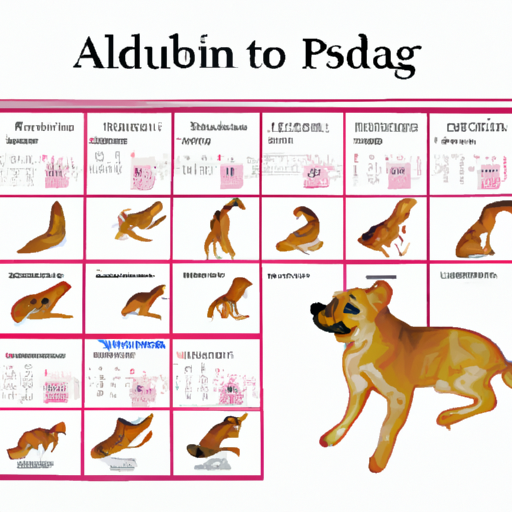Dogs have been our loyal companions for thousands of years, and in that time, we’ve learned a lot about their behavior, health, and development. One question that often arises among dog owners and breeders is, “How long are dogs pregnant for?” The answer isn’t as straightforward as you might think, due to variations in breed, size, and individual health factors.
Table of Contents
- Canine Gestation Period
- Factors Affecting Pregnancy Duration
- Stages of Dog Pregnancy
- How to Care for a Pregnant Dog
- Frequently Asked Questions
Key Takeaways
- The average gestation period for dogs is around 63 days.
- Factors like breed size, litter size, and individual health can affect the length of pregnancy.
- A dog’s pregnancy is divided into three stages, each having distinct signs and symptoms.
- Proper prenatal care is essential to ensure the health of both the pregnant dog and her puppies.
Canine Gestation Period
The gestation period of a dog, which is the time from conception to birth, is typically around 63 days. However, this can vary by a few days in either direction, often ranging from 58 to 68 days. According to the American Kennel Club, smaller breeds often have a shorter gestation period, while larger breeds tend to be pregnant for a bit longer.
Factors Affecting Pregnancy Duration
Several factors can affect the length of a dog’s pregnancy. For example, the size of the litter can influence the duration. Typically, larger litters result in shorter pregnancy periods. Age and health status can also play a role in the length of gestation. Older or health-compromised dogs may carry puppies for a longer period.
Stages of Dog Pregnancy
Just like human pregnancy, canine gestation can be divided into three stages: early, middle, and late.
- Early Stage: This stage lasts for about three weeks. During this time, you might not notice many physical changes in your dog. However, some dogs may show signs of morning sickness, like reduced appetite and occasional vomiting.
- Middle Stage: The fourth to the sixth week of pregnancy falls under this stage. Here, you’ll notice a clear weight gain and swelling of the abdomen.
- Late Stage: This is the final stage, starting from the seventh week until the birth of the puppies. In this stage, your dog may show nesting behavior, restlessness, and loss of appetite.
How to Care for a Pregnant Dog
Caring for a pregnant dog requires some extra attention and care. It’s essential to provide a balanced diet, regular exercise, and veterinary check-ups. You can find more details on caring for pregnant dogs on this one-stop guide.
A pregnant dog’s nutritional needs will change during pregnancy, and it’s important to adjust her diet accordingly. During the first few weeks of pregnancy, your dog’s regular diet should suffice. However, as the pregnancy progresses, she will need more calories and nutrients to support the growing puppies. You can consult your vet or check out this useful guide for more information.
The amount of exercise your dog needs will also change. While regular, gentle exercise is beneficial, strenuous activities should be avoided. You can read more about exercising pregnant dogs here.
Frequently Asked Questions
Q: How can I tell if my dog is pregnant?
A: Some signs of dog pregnancy include increased appetite, weight gain, and changes in behavior. However, the only surefire way to confirm pregnancy is through a veterinary examination.
Q: Can I use a human pregnancy test on my dog?
A: No, human pregnancy tests do not work on dogs. A vet can confirm pregnancy through ultrasound or other diagnostic tests.
Q: How many puppies can a dog have in one litter?
A: The number of puppies in a litter can vary greatly, depending on the breed and size of the dog. On average, dogs have between six and seven puppies per litter.
Understanding the ins and outs of canine pregnancy can seem daunting, but with the right information and care, you can ensure a healthy and successful pregnancy for your beloved pet. Remember, when in doubt, always consult with a trusted veterinarian.



